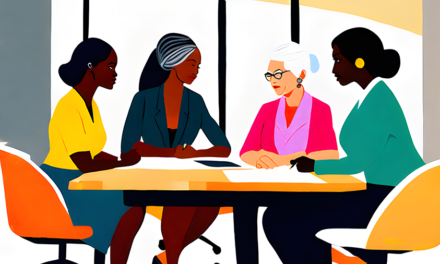The latest report from Reboot Online ranks the United Kingdom as the 10th best country in Europe for women to work in 2025. Still, gender equality in the workplace remains a challenge, with women still underrepresented in leadership positions.
In 2024, for every 100 men promoted to manager, only 81 women received the same promotion. At this rate, it could take nearly 50 years to achieve gender parity across all levels of employment.
The UK leads Europe in the representation of women in leadership roles, scoring highest in both overall ranking (8.39) and five-year growth (8.09). The country also ranks in the top half of Europe for the Global Gender Gap, a measure assessing equality across health, education and economic participation.
However, there are still areas where the UK lags behind. The report highlights that maternity leave with full pay is limited to just 12 weeks, making it the third lowest in Europe after Ireland and Switzerland.
Lithuania Leads the Way for Women in the Workplace
Lithuania ranks as the best country in Europe for women in the workplace in 2025, moving up from seventh place in last year’s rankings. With a total gender equality score of 8.54 out of 10, the country has seen the highest growth in female leadership positions over the past five years.
In 2024, Lithuania reported the highest number of female CEOs of any European country. While overall representation of women in non-CEO leadership roles is average, recent increases in top executive positions have contributed to its high ranking.
Maternity leave provisions in Lithuania are among the strongest in Europe, with over 52 weeks of full-pay leave. Employment rates for women are also high, scoring 8.1 out of 10, though growth in female employment over the past five years has been below the European average.
Norway and the Netherlands Follow Closely Behind
Norway ranks as the second-best country in Europe for women in the workplace. The country has a high percentage of female executives and board members in its largest listed companies, earning it a normalised score of 7.78 out of 10 and placing it third overall in leadership representation.
Norway also ranks third in the Global Gender Gap Index with a score of 8.75 out of 10. This index evaluates key indicators such as work and economic participation, educational attainment, health and survival and political empowerment.
The Netherlands has moved up from fourth place last year to rank third in 2025, with a total gender equality score of 8.54 out of 10. The country has one of the highest percentages of women in employment, scoring 9.47 out of 10 according to the European Institute for Gender Equality. This is the second highest in Europe, behind only Iceland. While the Netherlands ranks average in the Global Gender Gap Index, its strong employment figures contribute to its high position.
Cyprus Ranks Lowest for Economic Opportunities for Women
At the other end of the rankings, Cyprus has been identified as the least favourable country for women in the workplace in 2025. With a total score of 6.21 out of 10, Cyprus struggles particularly in leadership representation, scoring just 1.36 out of 10. Maternity leave with full pay is also below the European average at 15 weeks.
Luxembourg ranks second to last with a score of 6.59, due to low five-year growth in female employment and leadership positions. Belgium (6.75), Malta (6.79) and Italy (6.85) also rank near the bottom.
Progress in Some Areas but Challenges Remain
Naomi Aharony, CEO and Co-Founder at Reboot Online, said, “The overall results suggest that there has been some progress with gender equality in the workplace – especially across the past five years, as shown by the growth scores in our study. Lithuania, Norway and the Netherlands ranked highly across the board, indicating that some improvements are being made across the continent. Particularly with the number of women in CEO, President and Executive positions. It appears that companies are making big strides with representations in business, indicating their larger understanding of its importance.
“However, the disappointing positions of European countries such as Cyprus and Luxembourg reaffirm that the progress towards gender parity remains slow in Europe. Although it is good to see some advancement, we know that women still face numerous challenges when it comes to gender equality in the workplace. Ahead of this year’s International Women’s Day conversations, it’s important to reaffirm that there are still hurdles we need to jump to tackle the wage gap, lack of leadership representation, government incentives and work-life balance.”
As the rankings highlight, while some European countries are making strides in workplace equality, significant barriers remain in others. The pace of change continues to be slow and the challenge of achieving true gender parity in the workplace persists.






